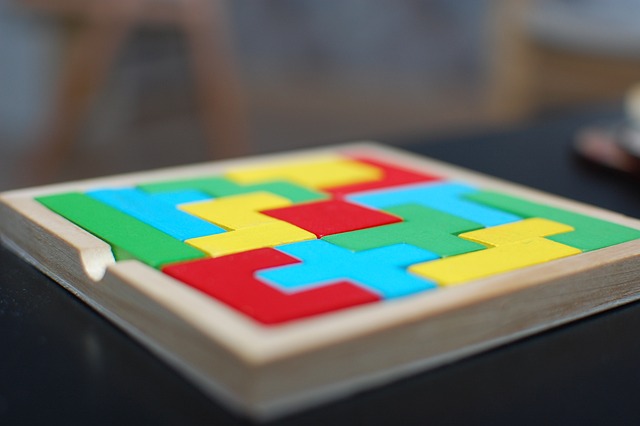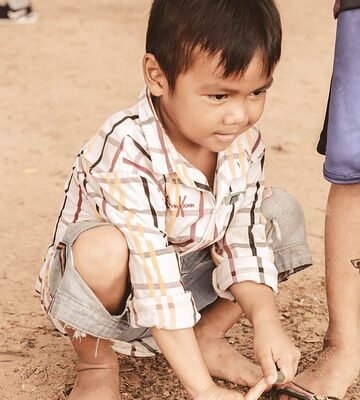Helping Kids Develop Critical Thinking in the Digital Age
Hello parents and caregivers, as we navigate the digital age, it’s more important than ever to help kids develop critical thinking skills. With the rise of social media, online gaming, and educational apps, our children are constantly exposed to information that can shape their thoughts, attitudes, and behaviors. But with great power comes great responsibility, and it’s up to us as parents and caregivers to ensure that our kids are equipped with the critical thinking skills they need to succeed in life. In this article, we’ll explore how you can help your child develop critical thinking skills in a world where information is just a click away.
Step 1: Encourage Questioning
Encouraging questioning is one of the most effective ways to foster critical thinking in children. Ask open-ended questions that encourage them to think deeply about a topic or issue, such as “What do you think will happen if…”, “How do you think this could be solved?”, or “What are some potential consequences of…”. By asking questions that prompt critical thinking, you’re helping your child develop the skills they need to analyze information, evaluate evidence, and make informed decisions.
Step 2: Promote Media Literacy
In today’s digital age, kids are constantly exposed to a wide range of media sources, from social media to news articles to online videos. But not all media is created equal, and some sources can be misleading or biased. By teaching your child how to critically evaluate the information they consume, you’re helping them develop the skills they need to make informed decisions and avoid falling prey to misinformation. Here are a few tips for promoting media literacy in kids:
- Encourage critical thinking by asking questions like “What’s the source of this information?”, “Is this article biased?”, or “Can I find any evidence to support or refute this claim?”
- Teach your child how to evaluate online sources, including websites, blogs, and social media posts.
- Discuss the importance of fact-checking and verifying information before accepting it as true.
Step 3: Foster a Love of Reading
Fostering a love of reading is one of the best ways to promote critical thinking in kids. When children read, they’re exposed to new ideas, perspectives, and ways of thinking that can help them develop their critical thinking skills. Here are a few tips for encouraging your child’s love of reading:
- Create a cozy reading nook or special reading spot where your child can relax and get lost in a book.
- Read with your child regularly, discussing the plot, characters, and themes as you go.
- Introduce your child to different genres of literature, including fiction, nonfiction, poetry, and graphic novels.
Step 4: Engage in Debates and Discussions
Debates and discussions are a great way to foster critical thinking in kids. By engaging in respectful conversations about different topics or issues, you’re helping your child develop the skills they need to analyze information, evaluate evidence, and make informed decisions. Here are a few tips for hosting effective debates and discussions with your child:
- Choose topics that are relevant and interesting to your child.
- Encourage respectful and open-minded discussion by modeling good critical thinking skills yourself.
- Use “I” statements instead of “you” statements, which can come across as accusatory or judgmental.
Step 5: Encourage Creativity and Exploration
Creativity and exploration are essential components of critical thinking. By encouraging your child to try new things, experiment with different materials and techniques, and explore their interests, you’re helping them develop the skills they need to think creatively and approach problems from different angles. Here are a few tips for fostering creativity and exploration in kids:
- Provide a variety of materials and resources for your child to work with, such as art supplies, science equipment, or musical instruments.
- Encourage your child to ask questions and seek out answers, even if it means trying new things or taking risks.
- Emphasize the importance of process over product, encouraging your child to enjoy the journey of learning and exploring, rather than just focusing on the end result.
Conclusion
In today’s digital age, it’s more important than ever to help kids develop critical thinking skills. By encouraging questioning, promoting media literacy, fostering a love of reading, engaging in debates and discussions, and encouraging creativity and exploration, you’re helping your child develop the skills they need to succeed in life. Remember, critical thinking is not just about solving problems or answering questions – it’s also about developing a deeper understanding of the world around us.
Tags:
critical thinking in kids
helping kids develop critical thinking skills
digital age parenting
media literacy for kids




